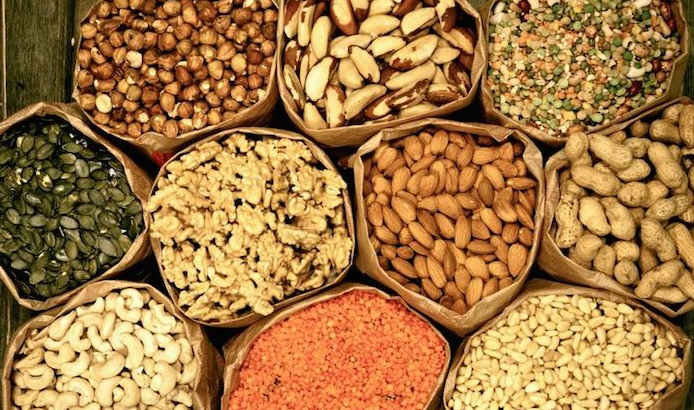AGRO SOLUTIONS: 13 things successful grain farmers do
What is the dividing line that sets successful grain farmers apart from the rest? What are those producers doing differently than growers who are struggling? “It’s not the colour of the paint on your machinery, whether it’s green, red, yellow or blue. It’s not the choice of seed that you plant. It’s not the chemicals […]

What is the dividing line that sets successful grain farmers apart from the rest? What are those producers doing differently than growers who are struggling?
“It’s not the colour of the paint on your machinery, whether it’s green, red, yellow or blue. It’s not the choice of seed that you plant. It’s not the chemicals and fertilizers you apply. In fact, it’s not even production,” says Jim Knuth of farm credit.
- Build positive working capital and short-term risk bearing ability
The successful farmers have positive working capital and are focused on staying that way.
“They’re trying to retain, even build their working capital because it’s their short-term risk bearing ability,” Knuth explains. “It’s really hard to run a business without working capital.”
Youths excited over profits from watermelon business
How cash crunch affects Ramadan shopping
- Pursue additional income sources
Outstanding farmers don’t let their income streams go stagnant. Additional forms of income may be found on-farm, such as diversifying with livestock or an off-farm job can also be a good source of stable income. At the end of the day, there are hundreds of unique ways to pursue different income sources, Knuth says.
- Develop solid financial acumen
Acumen is the ability to make good judgements and quick decisions. This requires thorough record keeping and a solid understanding of your farm’s financials. “These are people who are good with their numbers. They know their costs. They know their breakeven. The most important part is they use numbers to make business decisions. They don’t guess,” Knuth explains.
- Use enterprise analysis
The next step is using those sound financial records to do an enterprise analysis. Excellent farmers know how the pieces of their farm work together.
If your farm has four different operations, you should track them all individually. For example, if your operation includes grain production, cattle feeding and custom trucking, you should know which of those activities makes the farm the most money and which makes the least money. It’s important to know if a specific part of the farm is losing money, too. This information is powerful when it comes to making adjustments. “Don’t just throw everything in one bucket and hope somehow it comes out okay at the end of the year,” says Knuth.
- Understand family living costs
Great farmers know their family living costs – and how what they may, or may not, be able to afford can change in different price, margin, and profit environments. They are prepared to make adjustments.
- Negotiate cash rents
Building good relationships with landlords is key for successful farmers. The ability to negotiate stems from having a lot of revenue-based conversations, Knuth points out. It’s important to be proactive when negotiating cash rent.
- Sell underperforming or nonperforming assets
On the successful farms Knuth sees, nothing gets a lifetime guarantee. Underperforming or nonperforming assets are sold before they become a drain on the profitable parts of the operation.
- Develop a specific marketing plan
Marketing is another business skill that sets successful farmers apart. It has two critical steps.
First, successful farmers develop a marketing plan. Planning is one of the first things they do for the season, not one of the last. Then, they execute the marketing plan. They are proactive sellers.
- Understand the financial impacts of their decisions
Business decisions are made daily, weekly, monthly and annually in agriculture. By making one choice, you may be limiting your options down the road. Alternatively, one move could open a whole new set of possibilities for your operation. Knowing how your decisions and future opportunities work together is important.
- Restructure balance sheets
Knuth says farm credit’s most successful customers, “have likely restructured their balance sheets, particularly their medium-term and long-term debt, and have stretched that out because the amortizations that were short and aggressive in the ethanol boom days are not correct for this environment. They have given themselves maximum repayment flexibility.”
- Think holistically about cash flow and costs
It’s important to think holistically about your farm’s business decisions. Think about working capital per acre on all your acres, and machinery costs per acre on all your acres.
- Maximize profit vs yield
Find the sweet spot. Make sure you’re getting a return on investment on each acre.
“By planting the most expensive seed, throwing everything on but the kitchen sink, driving my variable costs through the roof, I can maximize yield. But I may not be maximizing profit,” Knuth says. “The other side of the coin is I can minimize costs, drag my yields down, and there’s certainly a diminishing return.”
- Pursue getting better, not just bigger
Knuth points out the importance of strengthening your farm’s weak points before pursuing expansion. If you get bigger before you’re ready, your operation’s problems may be compounded.
“Bigger is not a solution in and of itself,” Knuth reminds farmers.
Source: Successful farming
